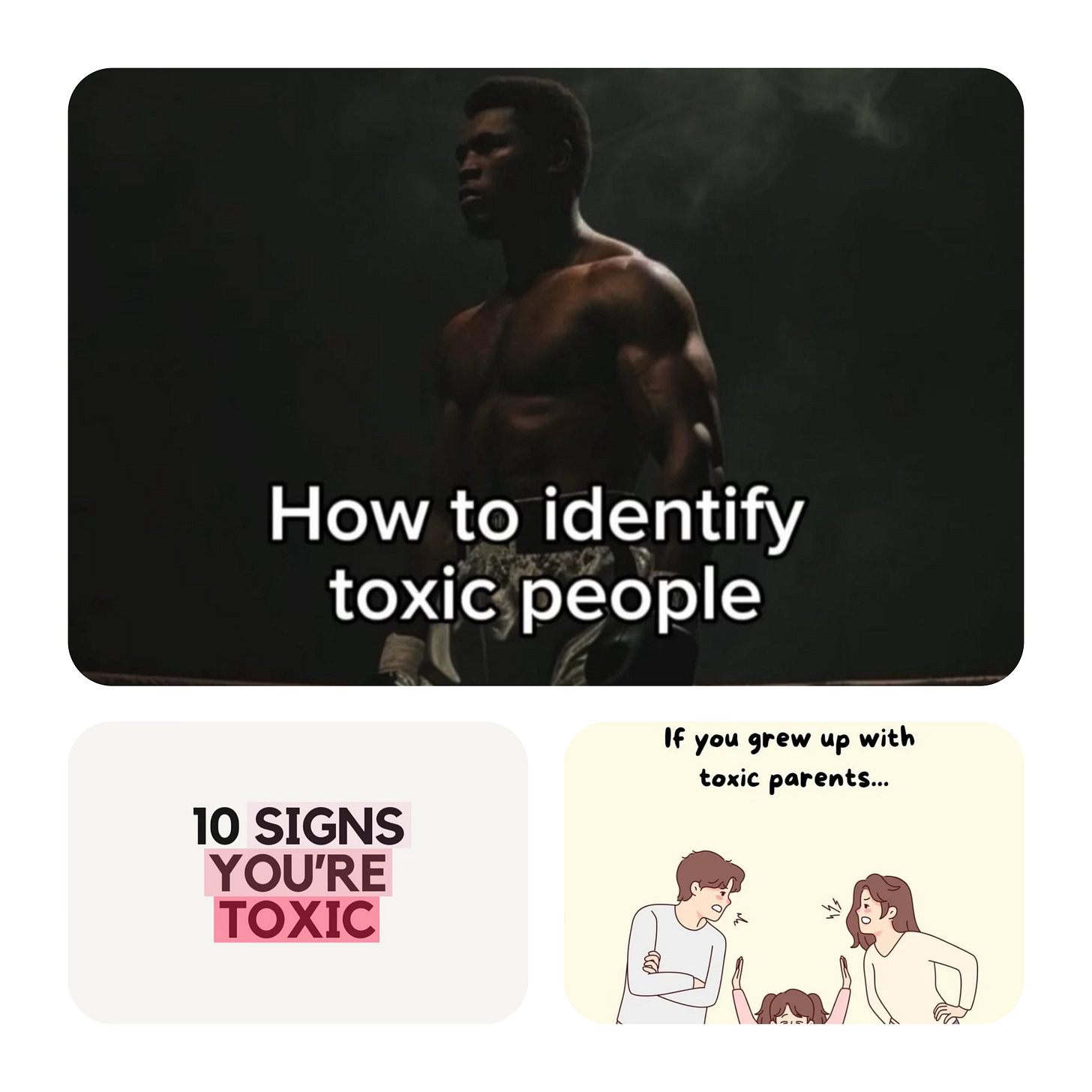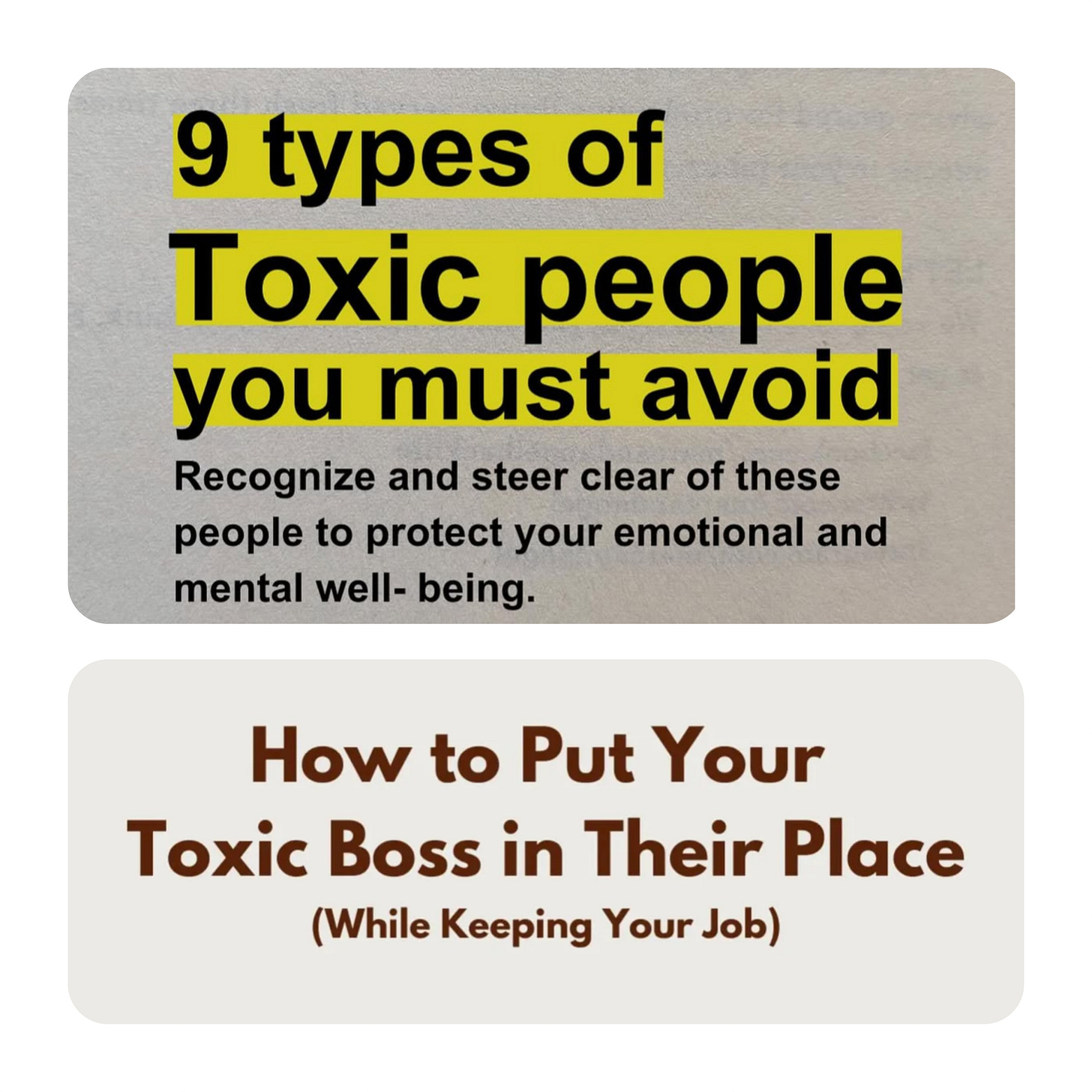The Rise of the Soft-Toxic Influencer
When aesthetic sugar-coated advice becomes harder to see.
Influencing used to be about selling products. Now, it’s about selling lifestyles.
It’s no longer just “Here’s the face wash I use,” it’s “Here’s the mindset I live by.” And that shift has changed everything.
Because once you start monetising your worldview, advice stops being a conversation. It becomes content.
And having been on the internet since its early days, I’ve realised that the most shareable content isn’t the most honest, it’s the most palatable.
That’s how we landed here: in the era of soft-toxic influencing.
This is the kind of advice that sounds kind, looks thoughtful, but leaves you just slightly misaligned with reality.
The kind that tells you to “protect your peace” without context and justifies ghosting people. Where “you’re not difficult, you’re just deeply feeling” becomes a neat escape from accountability. Where “boundaries” harden into walls you can’t see over or through.
This isn’t about calling anyone out. If anything, it’s a mirror. Because we’ve all consumed this content, shared it, and at some point, lived by it too.
I remember watching a reel a few days ago that said, “If it drains you, walk away. No explanation needed.” It felt powerful in the moment. Liberating, even. I bookmarked it.
That reel made me feel validated. But it also made me feel, in hindsight, a little dishonest.
Because real peace doesn’t come from avoidance. It comes from clarity. And clarity usually demands conflict, confrontation, and conversations that leave your throat dry.
What we’re seeing now is the rise of a certain kind of advice: emotionally fluent, aesthetically pleasing, and dangerously biased.
It borrows the language of therapy, but loses all the context and the nuance.
Words like “narcissist,” “trauma,” “emotional labour,” “energy drain”, once rooted in years of study and layered experience, now float casually through Instagram captions, diagnosing everyone from managers to flatmates.
And the line between mental health literacy and self-diagnosis is getting thinner by the day.
I’ve heard people describe their workplace as “emotionally unsafe” because their manager gave them critical feedback. A friend once told me they had to cut off an old colleague because they “no longer aligned energetically.” And maybe that’s true.
But when every conflict becomes a pathology, there’s no room left for discomfort, disagreement, or growth.
It’s not that the advice is wrong. It’s that it’s incomplete. And often makes us complacent and prevents our growth.
Trust me, real healing cannot be summed up by a five-second reel.
It’s unglamorous. It’s showing up for the hard conversations. It’s taking responsibility for how you show up. Most of the times, it’s lonely and feels like not worth the effort plus pain, but that is the only way. Suffering.
It doesn’t always involve bath salts and journaling setups. Sometimes, it’s just sitting with discomfort instead of aestheticising it.
But that’s harder to package.
Because the algorithm doesn’t reward nuance. It rewards vibes.
You’ll notice it if you scroll long enough: the “healing aesthetic.” Cozy lighting, voiceover affirmations, and text overlays that read like horoscopes.
I saw one that said: “You are not behind. You are exactly where you’re meant to be.”
And look, sometimes, that’s the reminder you need. But other times, it becomes a lullaby. A way to stay still when what you really need is to move.
The most dangerous advice online isn’t loud and wrong.
It’s the kind that whispers like truth, and keeps you stuck.
And that’s the thing with soft-toxic influence, it doesn’t demand anything from you.
It comforts you. Validates your mistakes. And lulls your ability to make changes.
But growth isn’t always soothing. Healing isn’t always beautiful. And self-awareness isn’t always shareable.
So lately, I’ve stopped asking, “Does this advice feel good?”
And started asking, “Is this helping me see myself clearly?”
Because not all softness is safe. And not all toxicity is loud.
Some of it shows up wrapped in calm voices and Canva fonts.
Telling you to stay exactly where you are, just with better lighting.
If this made you rethink some advice you’ve saved recently, forward it to a friend who might be stuck in the same loop and needs to Ctrl + Alt + Reflect.
Or tell me in the comments: what’s one “healing” post you believed… then outgrew?
See you next Sunday.
-Pawan






